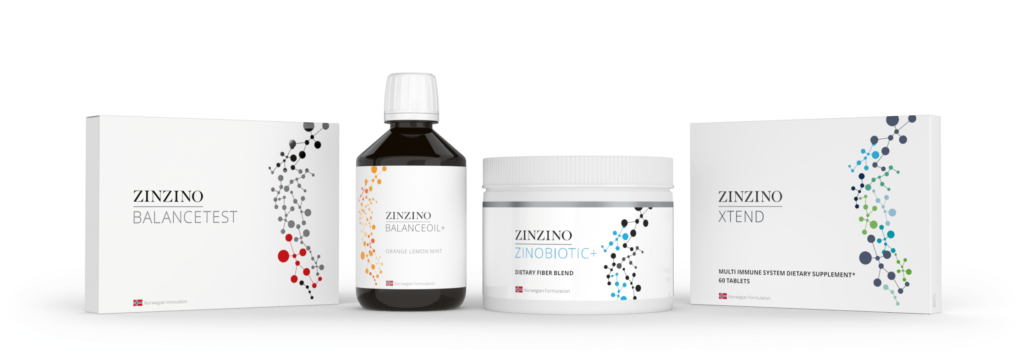For over a century, Western diets have shifted dramatically, and one significant change is the rise in the consumption of omega-6 fatty acids relative to omega-3s. Historically, humans consumed a balanced ratio of omega-6 to omega-3 fatty acids, around 4:1. However, in today’s diet, this ratio has escalated to approximately 20:1 in favor of omega-6, mainly due to the increased intake of processed foods and vegetable oils rich in omega-6. This imbalance contributes to chronic inflammation, increasing the risk of various health issues like autoimmune diseases, asthma, and allergies. Restoring a healthy omega-6/omega-3 balance is key to promoting better health, particularly joint health and longevity.
Understanding the Role of Omega-6 and Omega-3 Fatty Acids
Omega-3 fatty acids, such as EPA (eicosapentaenoic acid) and DHA (docosahexaenoic acid), have been essential to human health for millions of years, primarily sourced from marine life like fish. In contrast, omega-6 fatty acids, notably linoleic acid, have been increasingly consumed due to the rise in industrial seed oils like soybean, corn, and safflower oils. These omega-6-rich oils are now ubiquitous in processed foods, significantly increasing our intake of omega-6 fats while reducing the consumption of omega-3s.
This imbalance creates a pro-inflammatory environment in the body, contributing to low-grade chronic inflammation, which is a known risk factor for autoimmune diseases and allergies. Omega-6 fats tend to increase inflammatory responses, whereas omega-3 fats help to resolve inflammation and support overall immune function. Restoring balance by reducing omega-6 intake and increasing omega-3 consumption can be a critical step in managing inflammation and promoting joint health.

Sources of Omega-3 and Omega-6 Fats
To achieve a better omega-6/omega-3 ratio, it’s important to adjust dietary habits. Here are some good sources of omega-3s:
- Salmon roe: 2.7 grams of EPA/DHA per 3 oz serving
- Halibut: 2.21 grams
- Herring: 1.7–1.8 grams
- Wild salmon: 1.0–3.0 grams
- Sardines: 1.0–1.74 grams
- Trout: 1.0 grams
- Oysters: 0.45–1.15 grams
- Mackerel: 0.35–1.80 grams
In contrast, the following are high in omega-6:
- Walnuts: 10.8 grams per ounce
- Pine nuts: 9.5 grams
- Sunflower seeds: 6.5 grams
- Sesame seeds: 6.0 grams
By reducing the intake of omega-6-rich foods and incorporating more omega-3s, particularly from marine sources, you can help rebalance your fatty acid intake.
Benefits for Joint Health: Rheumatoid Arthritis
Rheumatoid arthritis (RA) is a chronic autoimmune disorder that causes inflammation and pain in the joints. Research has shown that omega-3s, particularly EPA and DHA, can significantly improve symptoms of RA by reducing inflammation. Studies involving fish oil supplementation have demonstrated a decrease in the need for pain relievers and other medications in individuals with RA, highlighting the powerful anti-inflammatory properties of omega-3s.
DHA, in particular, has been shown to reduce the expression of inflammatory molecules and calm an overactive immune system, which plays a significant role in RA and other autoimmune conditions. While it may take up to 18 weeks for DHA to reach its maximum concentration in cells, its long-term benefits for joint health are substantial.
Inflammatory Bowel Disease: Ulcerative Colitis and Crohn’s Disease
Chronic inflammatory bowel diseases like ulcerative colitis and Crohn’s disease are associated with high levels of inflammatory molecules, particularly in the intestines. Omega-6 fats, particularly linoleic acid, can exacerbate inflammation in these conditions, as they increase the production of pro-inflammatory molecules like prostaglandins and leukotrienes.
Supplementing with omega-3s, especially EPA and DHA, has been shown to help reduce inflammation in these conditions by inhibiting the production of pro-inflammatory substances and supporting the body’s natural anti-inflammatory processes. Reducing the intake of omega-6-rich oils and increasing omega-3 consumption may offer significant relief for individuals suffering from these debilitating conditions.
Allergies and Asthma
The rise in allergic diseases, such as asthma and eczema, parallels the increase in omega-6 consumption in the modern diet. Omega-6 fats contribute to the production of inflammatory substances that can trigger allergic responses, while omega-3s help reduce these reactions by inhibiting the production of pro-allergic molecules.
Clinical studies have shown that supplementing with omega-3s during pregnancy can significantly reduce the risk of allergic diseases in offspring. In several trials, pregnant women who took omega-3 supplements had children with a reduced risk of developing food allergies, asthma, and eczema.
Conclusion: Achieving Balance for Longevity and Health
The modern Western diet’s excessive intake of omega-6 fats, coupled with a decline in omega-3 consumption, contributes to chronic inflammation, which can lead to autoimmune diseases, allergies, and joint issues. By adjusting your diet to reduce omega-6 intake—particularly from industrial seed oils—and increase marine omega-3s, you can support better joint health, reduce inflammation, and promote overall longevity.
Incorporating more omega-3-rich foods like salmon, sardines, and oysters while cutting back on omega-6-rich oils and processed foods is a powerful strategy for achieving long-term health and wellness.
Reference: https://pmc.ncbi.nlm.nih.gov/articles/PMC8504498/

